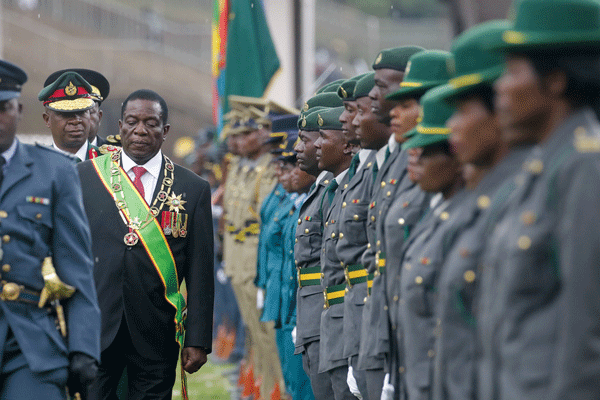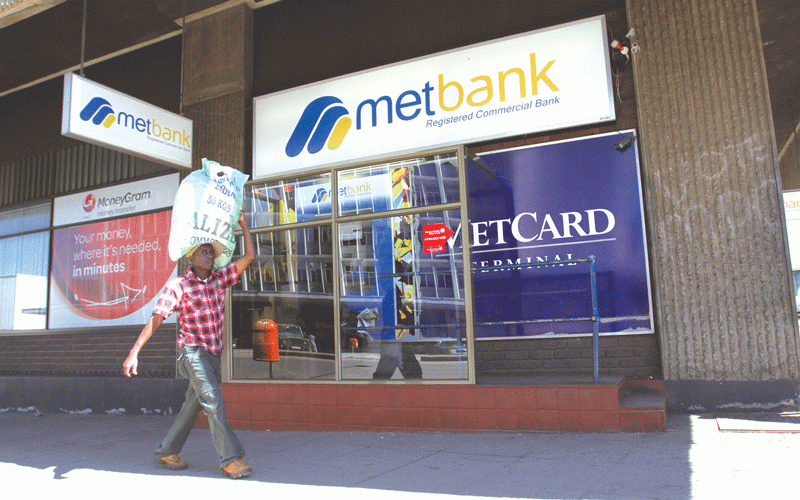
It was a finger-pointing week. At Zanu PF headquarters on Wednesday, President Emmerson Mnangagwa had an explanation for the economic crisis; it was the detractors.
newZWire
“On the economic front, we are witnessing a relentless attack on our currency and the economy in general through exorbitant pricing models,” Mnangagwa told the Politburo. “We are fully cognisant that this is a battle being fuelled by our political detractors, elite opportunists and malcontents who are bent on pushing a nefarious agenda.”
Later that day, Home Affairs Minister Kazembe Kazembe rustled up security chiefs for a rare Press conference. There, he too had an explanation for the political crisis; again, the detractors.
“Some foreign diplomats accredited to Zimbabwe have quite often not shied from engaging in anti-government activism, which renders it difficult to differentiate them from card-carrying members of the opposition,” Kazembe said.
The list of Kazembe’s detractors includes everyone from diplomats, former Zanu PF officials and, bizarrely, even eccentric preachers. The latter could barely believe their luck at being made so relevant.
The ruling party summoned Finance minister Mthuli Ncube and RBZ governor John Mangudya to explain the economic crisis.
After the meeting, Patrick Chinamasa, a former finance minister himself, repeated the old trope about invisible saboteurs.
- Chamisa under fire over US$120K donation
- Mavhunga puts DeMbare into Chibuku quarterfinals
- Pension funds bet on Cabora Bassa oilfields
- Councils defy govt fire tender directive
Keep Reading
“While there was consensus on the global economic recession and slowdown caused by the COVID-19 contagion, the general lockdown restrictions on certain sectors of the economy and the continued illegal economic sanctions,” Chinamasa said, “there was, however, a robust acknowledgment that there is an invisible hand at play fomenting regime change and as a revolutionary party we will jealously guard against such elements.”
However, the truth is clear; this is a party that has run out of ideas and confidence in itself, and it is starting to lash out.
In the early months of Mnangagwa’s presidency, he looked more confident and assured, even frustrating the opposition by giving them little attention. There would be less talk on politics, and more on the economy, he would tell his supporters.
But after the goodwill faded over unfulfilled promises, graft and abuses, Zanu PF is now feeling the pressure as the economy weakens.
Last week, Ncube testified before Parliament’s Budget and Finance Portfolio Committee, chaired by Zanu PF MP Felix Mhona. After listening to Ncube speak on the economy, a frustrated Mhona said: “You are lucky you don’t have a constituency; you don’t have to explain these things to people.”
The signs of a party that has lost all confidence in itself; fearful, unsure about making decisions, more incoherent on policy than ever and, more dangerously, increasingly paranoid.
This fear and paranoia is a threat. We know this because we have seen it before.
This has always been how Zanu PF behaves when it is fresh out of ideas. It starts to see enemies everywhere. And when that happens, it lashes out. On the political front, it goes after the “detractors”. On the economic front, it goes into full control mode.
Been there, done that
In June 2007, the value of the Zimbabwe dollar fell to 200 000 against the US dollar. Then, just as now, the exchange was artificially fixed at 15 000 to the USD, and at 25 today.
In the shops, prices were running riot. So, President Robert Mugabe then came up with a genius plan; if prices are too high, why not just cut them in half.
And that’s exactly what the government did. Obert Mpofu, then Industry minister, ordered that all prices be halved, and that anyone that resisted be arrested.
Then, just as now, it was all the fault of regime change agents undermining the currency and stoking inflation.
“Government is aware that these escalating price increases are a political ploy engineered by our detractors to effect an illegal regime change against the ruling party and the government following the failure of illegal economic sanctions,” Mpofu said then.
Over 5 000 businesspeople were arrested in that crackdown. These included small traders, and also the top executives of large corporations; the CEOs of OK Zimbabwe, Edgars, Spar, Innscor and Colcom were among those arrested.
The result was obvious; shop shelves went bare and many businesses we ruined for good. The move did not stop inflation; hyperinflation in fact gathered speed, until the government stopped measuring the inflation rate.
Political fallout
It’s not just the economic space that suffers when Zanu PF is seeing enemies everywhere. The political space also tightens.
That same year 2007, under pressure on the economic front, Zanu PF started hitting out at opponents. The late MDC leader Morgan Tsvangirai was leading a divided MDC, with many starting to question his leadership. But a brutal beating at the hands of the police galvanised what had been waning local and international support for the opposition leader.
It is not like government does not know what needs to be done. It’s that they do not want to.
“If we do not reform now, we will continue to drown in debt or peddle along in mediocrity.
Zimbabweans deserve better. Zimbabwe deserves better,” Mnangagwa said in a speech on Friday.
Yet, on current evidence, it is clear that the path that the party has chosen is not the one laid out in his speeches. It is the one of the old paranoid Zanu PF.
In this fight against “detractors”, the necessary economic reforms, already half-hearted, may now be pushed further away from the government agenda.
Positions are hardening between Zanu PF and its foreign and local opponents. And we have seen before what happens when that begins.
It is never the fighting elites that suffer. It is the economy, always.
Zanu PF’s paranoia would be comical, if it wasn’t so dangerous to the country.











